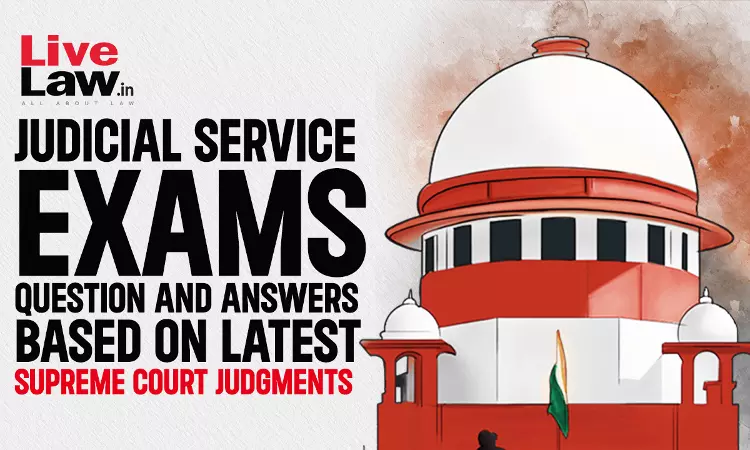Important MCQs Based On Latest Supreme Court Judgments For Law Examinations
Yash Mittal
19 Oct 2024 11:33 AM IST

Next Story
19 Oct 2024 11:33 AM IST
Q 1. After the arguments concluded, the complainant filed an application seeking further investigation under Section 173(8) of the Cr.P.C. The application was filed based on the evidence he led during the trial without averring new material or grounds for further investigation. Decide.a. The application would not be maintainable due to the complainant's failure to produce new material.b....
